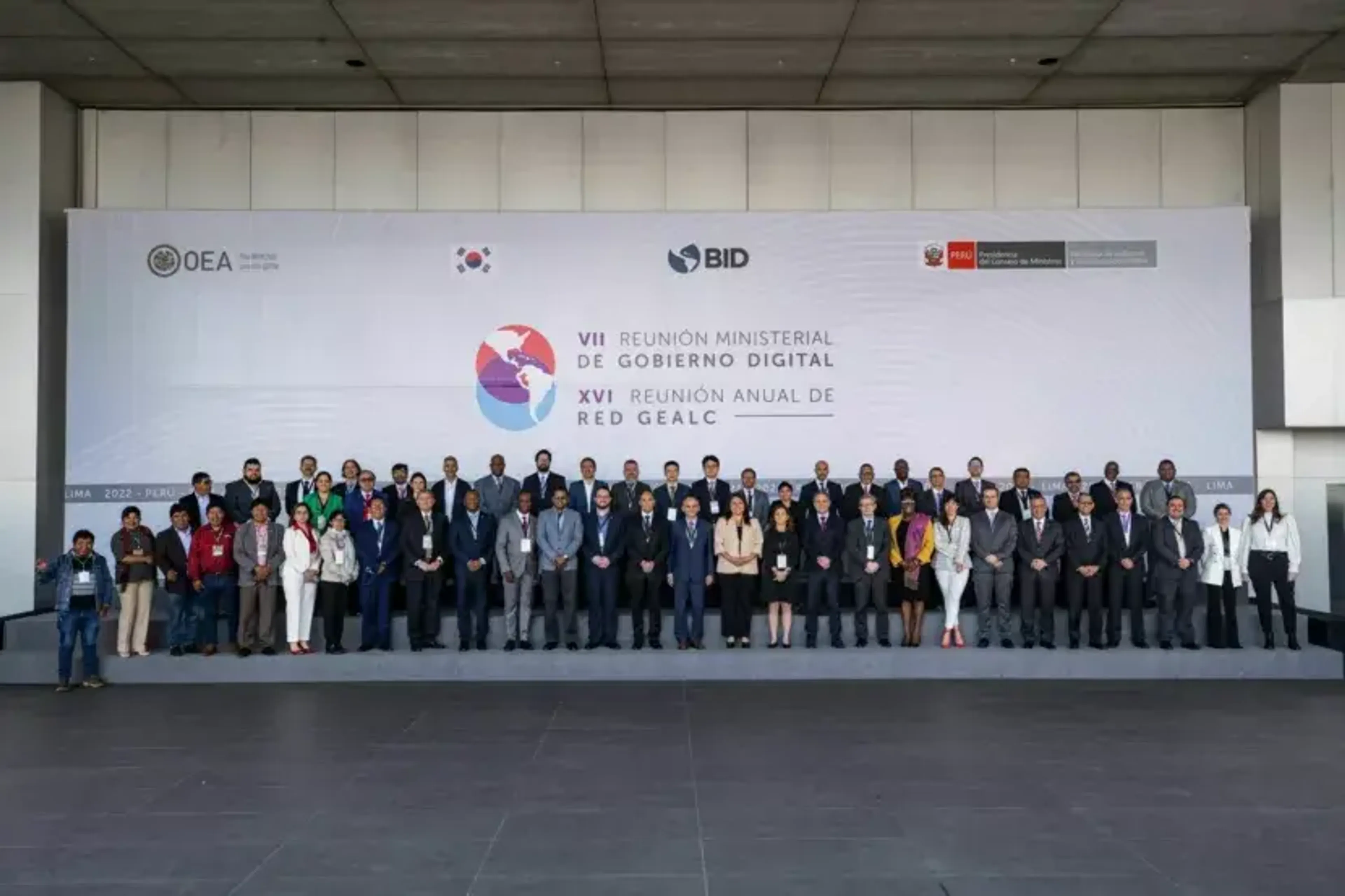Reflections on the Red Gealc annual meeting in Peru

For 19 years, the Latin American and Caribbean region has benefitted from a network of dialogue, participation and collaboration, bringing together governments and their leaders in digital transformation.
The Red Gealc, together with OECD E-Leaders, is the community of practice with the greatest influence on the digitization agenda of the region’s countries. Thanks to the support of the IADB and the OAS, this community promotes working groups on cross-border issues across the continent.
On 9-10 November 2022, Public Digital network member Andrea Barenque and myself were in Lima, Peru, participating in the annual meeting of this network, where we were able to observe and celebrate as a community the advances in digital transformation in the region.
After 2 years of pandemic, where digital teams were fully tested, always working in beta and providing digital services in short periods of time, what is the state of the public digital ecosystem in Latin America and the Caribbean today?
New Leadership
While we have seen a complete electoral cycle in these nations, as well as substantial change in the leadership of their digital teams, the objective of transforming how public organisations provide services to their citizens remains the same. This is perhaps the most important theme from the event, and the one that has cost the governments of Latin America and the Caribbean the most: The continuity of digital public policies during administrational changes with different political orientations.
In Lima we saw the progress of the countries that lead the region in relation to digital transformation: Uruguay, Brazil, Colombia, Peru and Argentina. It is no coincidence that all of these countries have digital transformation initiatives that were started in previous administrations and continued (and evolved) by current ones.
The pandemic brought a setback in several administrations in terms of the development of digital services and the processes associated with organisational change. We saw this in the new UNDP digital government index, where, except for the countries that lead the region, governments have had structural, political and financial deficiencies obstructing their digital transformation processes.
We must assume that it is necessary to reform the training
of digital teams, their middle managers and political managers. Seeking
to reinforce this, the IADB presented during the meeting in Lima the "Government Digital Transformation Guide",
a fundamental tool for taking actions in five key axes: governance and
institutionality, regulatory framework, digital talent and change
management, infrastructure and technology, and new digital processes and
services.
Cross-border collaboration
The Red Gealc, through its working groups, stimulates communities of practice and exchanges between countries. Perhaps the most outstanding event of the meeting was the presentation of Red Gealc's trusted lists, which links the national lists of digital signatures of Argentina, Brazil, Colombia, Costa Rica, Paraguay, Peru and Uruguay, scalable towards other countries.
The lists open up infinite possibilities in the exchange of data and services between countries in order to simplify bureaucracy, facilitate trade, and aid the social and economic development of their citizens.
Emerging technologies
The current technological trend of including all digital infrastructure within the metaverse or blockchain was somewhat relegated in the exhibitions of the different countries at Lima. This is because there is still a long way to go in achieving the basics: solving the provisioning of digital services to users in an efficient and reliable manner.
The discussion and implementation of digital identity strategies for countries is perhaps the spearhead to enable the use of emerging technologies in organisations. However, everything falls like a house of cards if governments cannot manage the basics of what citizens expect: websites working with correct information, and digital services which deliver in a timely manner.
Andrea Barenque spoke at the emerging technologies panel on
behalf of Public Digital, presenting our “Emerging Technologies
Adoption Model” with the aim of helping countries to develop these
practices without losing sight of the fact that behind a new technology,
there are still people and teams in charge of its implementation,
regulation, monitoring and control.
Community
I left Lima feeling energised by the present and future of the region and with the certainty that the digital government community of Latin America and the Caribbean is a force for change and collaboration to be followed by other regions globally.
Public Digital we will be rooting for digital teams across the world, and are ready and waiting to help.
Onwards.